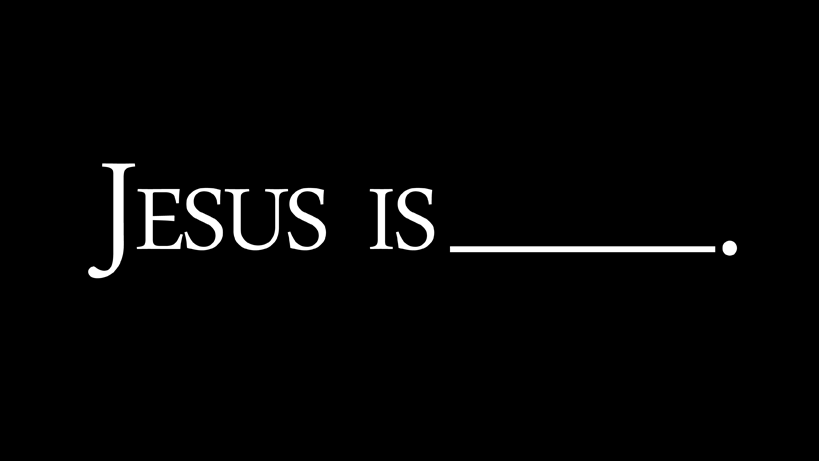
About the author : Antwuan Malone
Antwuan Malone is a Ministry Director at ELEVATE Young Adult Ministry (elevateministry.net) where empowers young adults toward Christian leadership. He is passionate about seeing young adults take their place in church history by drawing near enough to God to hear his call on their life, and courageously living in obedience to that call.
Who Do You Say I Am?
This is the only question that really matters.
In Matthew 16:13-20, Jesus asks this question to his disciples. I find the question rather peculiar. We give the disciples a lot of credit for dropping everything and following Jesus, and I think we assume they did so because they actually had an idea about who this “Jesus” character was. We should be beyond asking who Jesus is by this point. And yet, Jesus still asks.
The timing is even more peculiar when you stop to consider how much the disciples had seen Jesus do. Jesus had performed miracle after miracle. Healing sick, feeding multitudes with one lunch, walking on water, and the list goes on. They’d seen all of this. Could there really be any doubt about who Jesus was? And yet, Jesus still asks.
And then there’s the great teaching. Parable after parable. Illustration after illustration. Sermon after sermon. They watched Jesus confound the Pharisees and scribes. They heard Jesus teach about loving our enemies, about how to pray and how to live. Most of us would love to hear teaching and instruction straight from the mouth of Jesus. The disciples enjoyed such teaching , both among large groups of people and in the intimacy of their small company of twelve. They lived with the masterful teacher, learning from his words and his actions. And yet, Jesus still asks.
Who Is Jesus?
It’s a simple enough question, really – a question the disciples were in great position to answer. If anyone should have been able to say with certainty who exactly Jesus was, it was these twelve. And yet, none of them respond. None of them except Peter.
When Jesus asked what everyone was saying about him, the answers sound similar to the answers we hear today. Things like, “He was a great teacher”, “He was a great prophet,” or “He was a good man.” But Peter’s answer is completely different. “You are the Christ, the Son of the living God.”
And I’m thinking, well, duh! Of course he is! Look at all that’s happened in front of Peter. Again, they’d seen so much. But pay attention here, because there something we could miss. When Jesus replies to Peter’s correct claim, he doesn’t tell Peter that he’d judged correctly based on what he’d seen. He doesn’t ask the other disciples what else he needed to do to make who he was more clear. Instead, Jesus replies, “Blessed are you, Simon Bar-jonah! For flesh and blood has not revealed this to you, but my Father in heaven.”
Did you catch it? Jesus said, nothing about him (his flesh and blood) — his intellect, his reasoning, he powers of observation, his ability to analyze what he’d experienced — led him to conclude Jesus really was the Son of God. Jesus credits God, the Father in heaven, for the revelation.
So what does it all mean? Well, it means that the revelation about who Jesus is comes spiritually… not mentally, or physically. Or, more simply, it means that Jesus cannot perform his way into you believing him, nor teach his way into you believing in him, but as he told Nicodemus, we must be “born again.” Jesus tells Nicodemus in John 3 that “unless one is born again, he cannot see the kingdom of God… that which is born of flesh is flesh, and that which is born of the spirit is spirit.”
We are living in a society that hopes to find all truth through verifiable material, logic and reason. But the scriptures here are clear. We cannot find Jesus, and the kingdom of God within which he rules, using such means. We must have a divine encounter with God. We must be spiritually reborn to see Jesus for the Son of God, the Rescuer, Saviour and Lord He really is.
It was revealed to Peter. Later, it was revealed to the rest of the disciples. It can be revealed to us as well.




